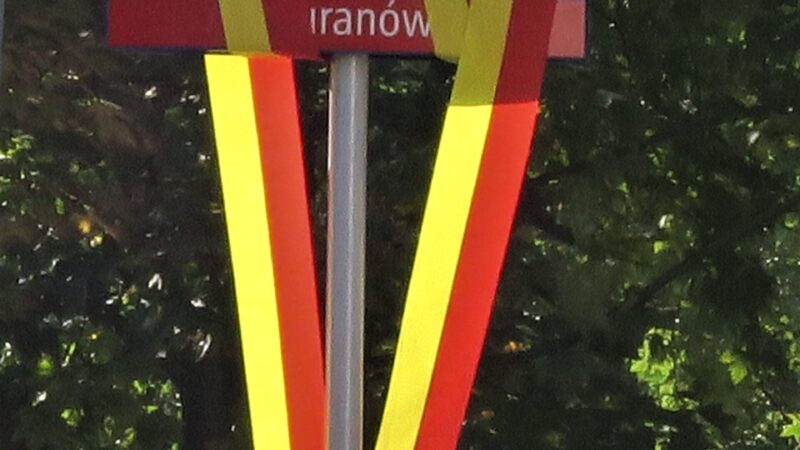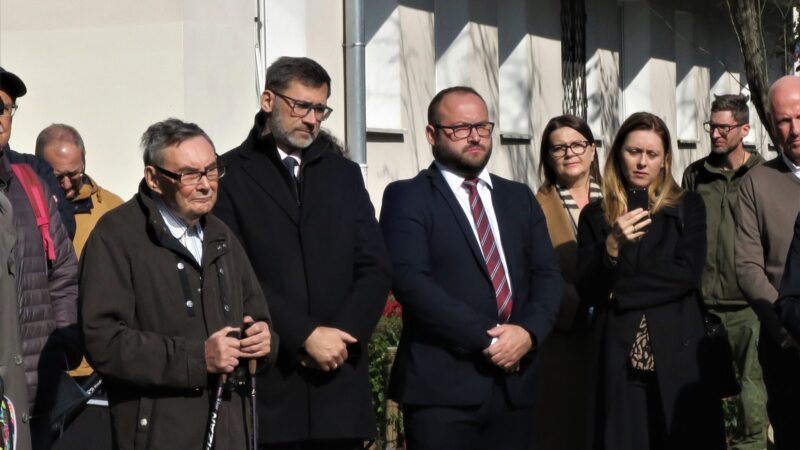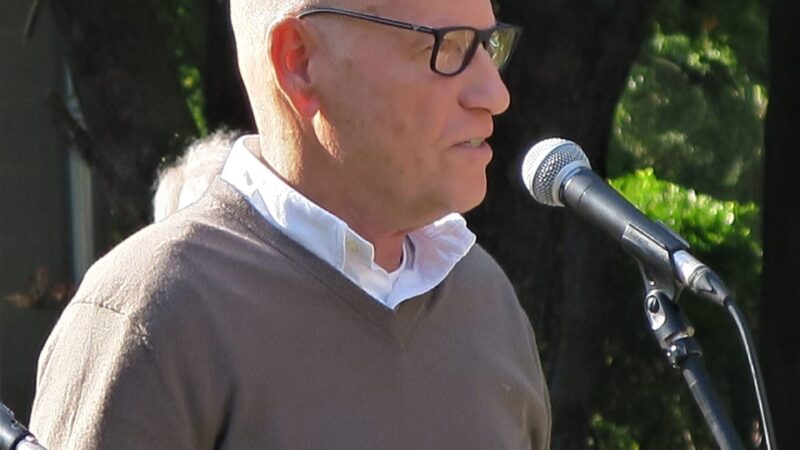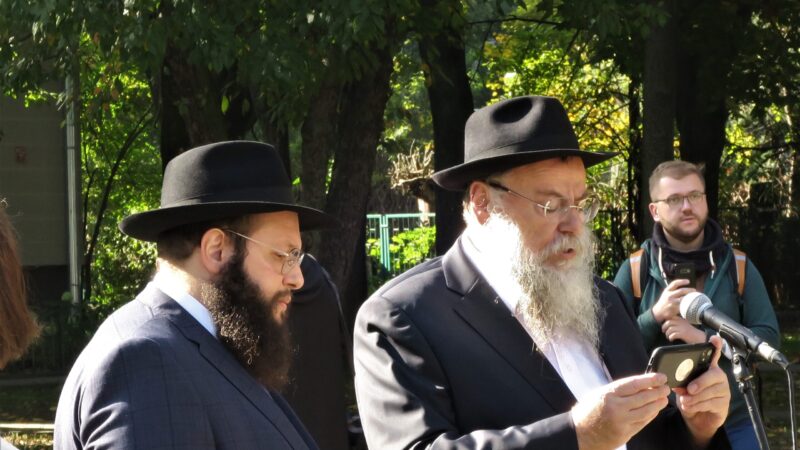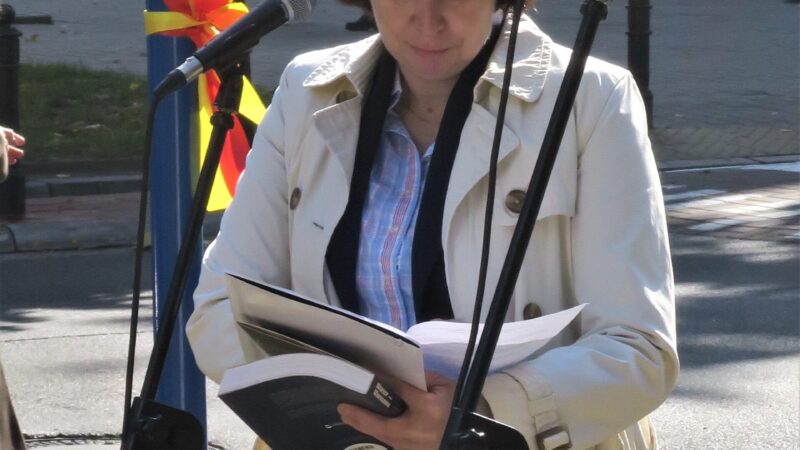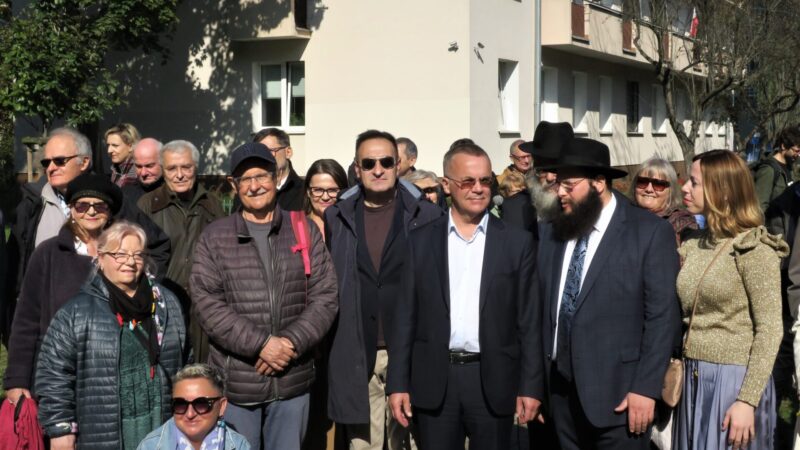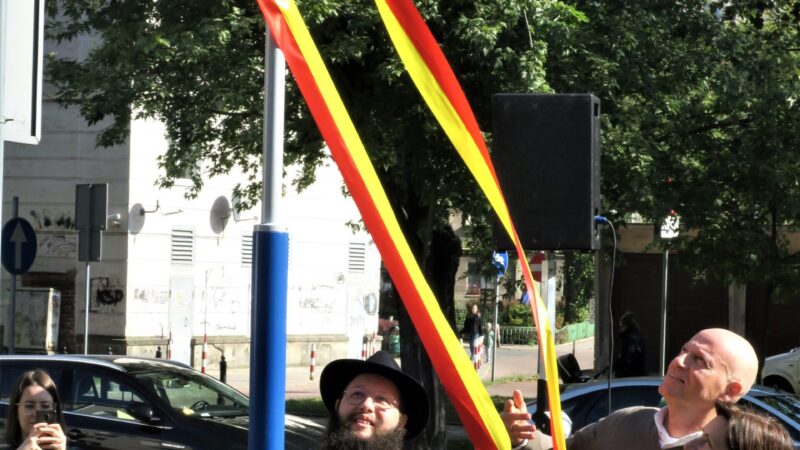The Ceremony of Naming the Street after Dow Ber Meisels
On Friday, October 1, a ceremony was held to name the street after Dow Ber Meisels – the Chief Rabbi of Warsaw in 1856-1870.
Rabbi Dow Ber Meisels was an extraordinary personality. He was born in Szczekociny in 1798 and received a rabbinical education from his father, who lived in Kamieniec Podolski. In 1832 he was elected Chief Rabbi of Krakow, where he lived with his wife and, together with his father-in-law, ran a commercial enterprise that, among other things, enabled him to finance arms shipments for the fighters of the November Uprising in the area of the Russian partition. He became involved in issues of national liberation, encouraging Jews to support Poles fighting the Russians; he supported the uprisings, including the one in Kraków (1846). In the same year he was elected to the Kraków City Council. He was an advocate of moderate assimilation and fought for the abolition of laws that discriminated against Jews, which led to numerous conflicts with the Senate of the Free City of Krakow. In 1848 he was elected to the first Austrian parliament. At the same time, he published an appeal to Polish Jews, urging them to support the Spring of Nations.
In 1856 he was appointed chief rabbi of Warsaw, where he was also a member of the municipal delegation. He delivered sermons in Polish in which he urged the Jews to unite with the Poles in the liberation struggle. He participated in the work on the educational reform prepared by Aleksander Wielopolski. In 1861 he ordered the closing of Warsaw synagogues as a sign of solidarity with the Catholic clergy, who closed the churches after they had been desecrated by the Cossacks who broke up the independence trials. On March 2, 1861, as a member of the municipal delegation, he participated in the “Funeral of the Five”, which became a great demonstration of solidarity between the different states of the society of the Congress Kingdom. For his participation in the funeral he was arrested and imprisoned in the Warsaw Citadel. After the outbreak of the January Uprising of 1863, the tsarist authorities forced him to leave the state because he did not want to curse the Jews who had fought in the uprising and agreed to read the manifesto of the insurgent authorities in the synagogue. He stayed in Katowice, Krakow, Lemberg and Vienna, among other places. After a few years he returned to Warsaw, but his activities were strictly controlled by the tsarist authorities. Soon after, he died and was buried in the Jewish cemetery at Okopowa Street. His funeral became a great demonstration of Polish-Jewish unity against tsarist oppression.
Rabbi Dow Ber Meisels was the patron of one of the streets in pre-war Warsaw. On the initiative of the Jewish Historical Institute, his patronage was returned on October 1, 2021. The ceremony was attended by: Director of the Jewish Historical Institute, Monika Krawczyk; Marian Turski; Jarosław Sellin, State Secretary at the Ministry of Culture, National Heritage and Sports; Aleksander Ferens, Mayor of the Śródmieście District of the Capital City of Warsaw; Director of the Office of Culture of the Capital City of Warsaw Artur Jóźwik; Rabbi Yehoshua Ellis representing the Chief Rabbi of the Republic of Poland Michael Schudrich; Rabbi Shalom Dow Ber Stambler; Director of the American Jewish Committee Central Europe Sebastian Rejak; Rabbi Meisels’s descendant, Daniel Schlitner. The Warsaw Ghetto Museum was represented by Press Spokeswoman Katarzyna Brzezińska.


